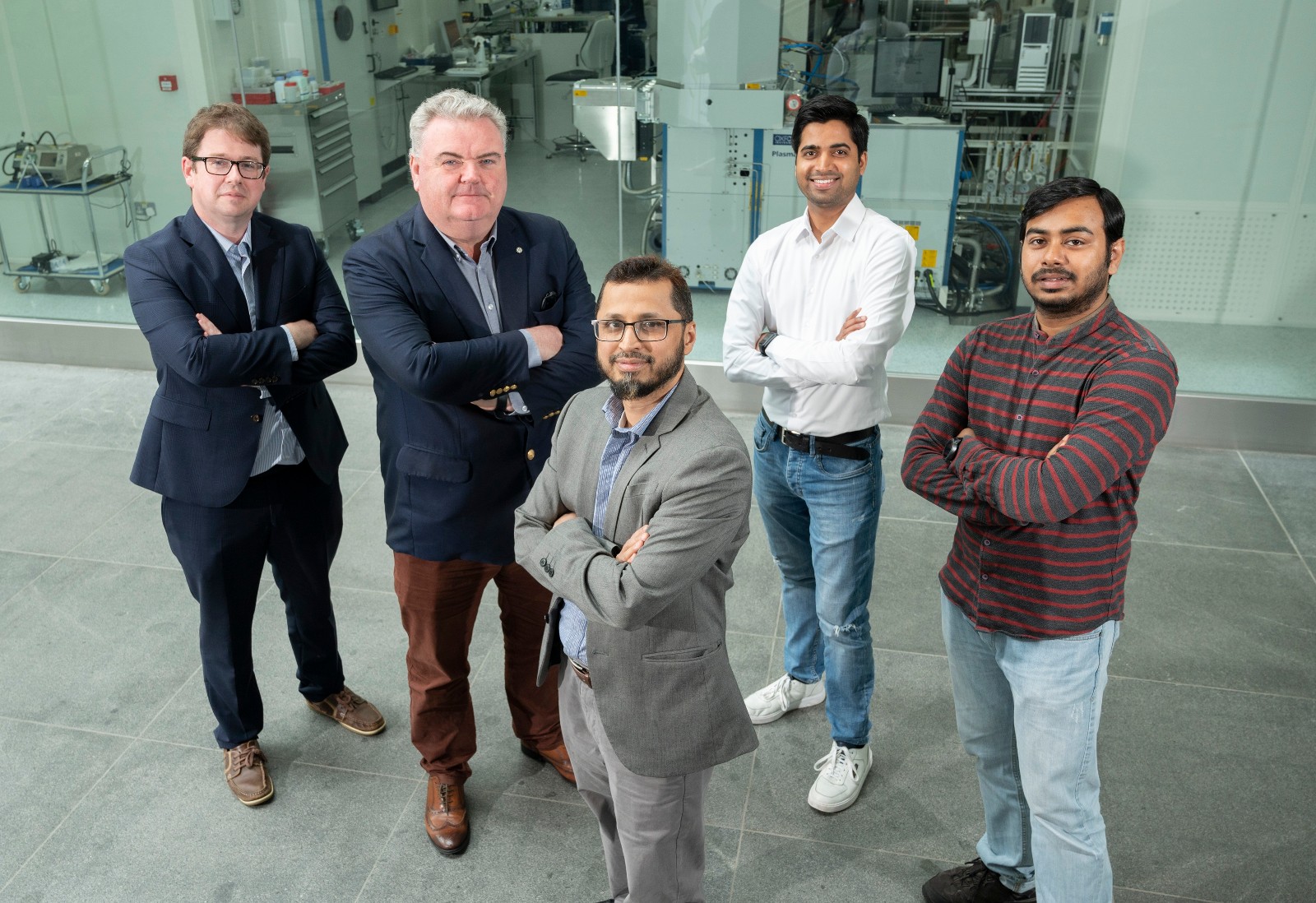Have you ever driven past a wind farm on a wild day and wondered why the turbines are turned off? Well, this may be ‘dispatch downtime,’ where operators are required to stop producing renewable energy, due to curtailments or limitations with broad power systems and local networks.

In the COSTORE project, funded by the Sustainable Energy Authority of Ireland, the International Energy Research Centre (IERC) at Tyndall National Institute, based at UCC, has started innovative new research to reduce this downtime by examining the full potential of solar PV power plants and battery energy storage systems (BESS) working side by side.
Amarenco Solar Limited, one of the largest PV plant developers in Ireland, has teamed up here with IERC to develop novel solutions to increase energy storage so PV plants can reduce their dispatch downtimes to zero. The benefit is that Ireland can then produce additional renewable energy and it will also ensure PV can participate in ancillary grid (DS3) services, which are helping to deliver a secure, sustainable electricity system in Ireland.
The proposed multi-services provision (MSP) will encourage further participation of PV-ESS plant in Renewable Electricity Support Scheme (RESS) auctions. Combining technical and economic analysis, COSTORE will draw on pilot experiments in a real-time simulation environment. COSTORE will also address business model, barriers, and recommendations for industry stakeholders, policymakers and public bodies for further deployment of these systems.
Professor Brian Norton, the Head of Energy Research at Tyndall National Institute, noted that “the rising levels of dispatch down compromise Ireland’s power system ability to reach its renewable energy targets, increase the financial risk for renewable energy based power plant owners. This increases the cost of renewable electricity for electricity consumers. It is, therefore, a priority to maintain dispatch downtimes at their minimum possible level. COSTORE will analyse the techno-economical challenges and develop innovative solutions to achieve the optimise the contributions from solar PV power plant in Ireland with the support of energy storage and artificial intelligence.”
Dr Shafi Khadem, PI of COSTORE, and Lead, “Intelligent Grid” Research Team in IERC, explained, “We will present a bottom-up analysis of both PV plants and energy storage systems operating side-by-side starting from the selection, sizing, integration of ESS and PV plant, to the control and management for providing multiple services. We will look at the best possible combination of system structures to achieve zero dispatch downtime. We will also look at why plants have to stop producing energy at certain times, for instance because of limitations on the power system, over frequency, etc. Artificial intelligence(AI) techniques will play a vital role in delivering these innovative solutions.”
A design guideline for the different system components will be developed, aimed at minimizing investment cost while maximizing system flexibility and the whole system financial output supported by the business model solution. Policy and regulatory recommendations will also be made.
In supporting the project, John Mullins, CEO of Amarenco Solar Limited, expressed that, “As decarbonisation progresses and renewable penetration in Ireland and elsewhere increases, the interaction between renewables and storage is critical to get to Net Zero. In addition, the European security of supply crisis is embellishing the need for optimisation of storage on our grid as it interacts with Solar PV and other technologies. Our collaboration with the IERC on COSTORE is a research project that will assist the optimisation of energy on our grid going forward.”
The project is funded by the Sustainable Energy Authority of Ireland and is led by IERC in collaboration with Amarenco Solar Limited.
Media Coverage for COSTORE: